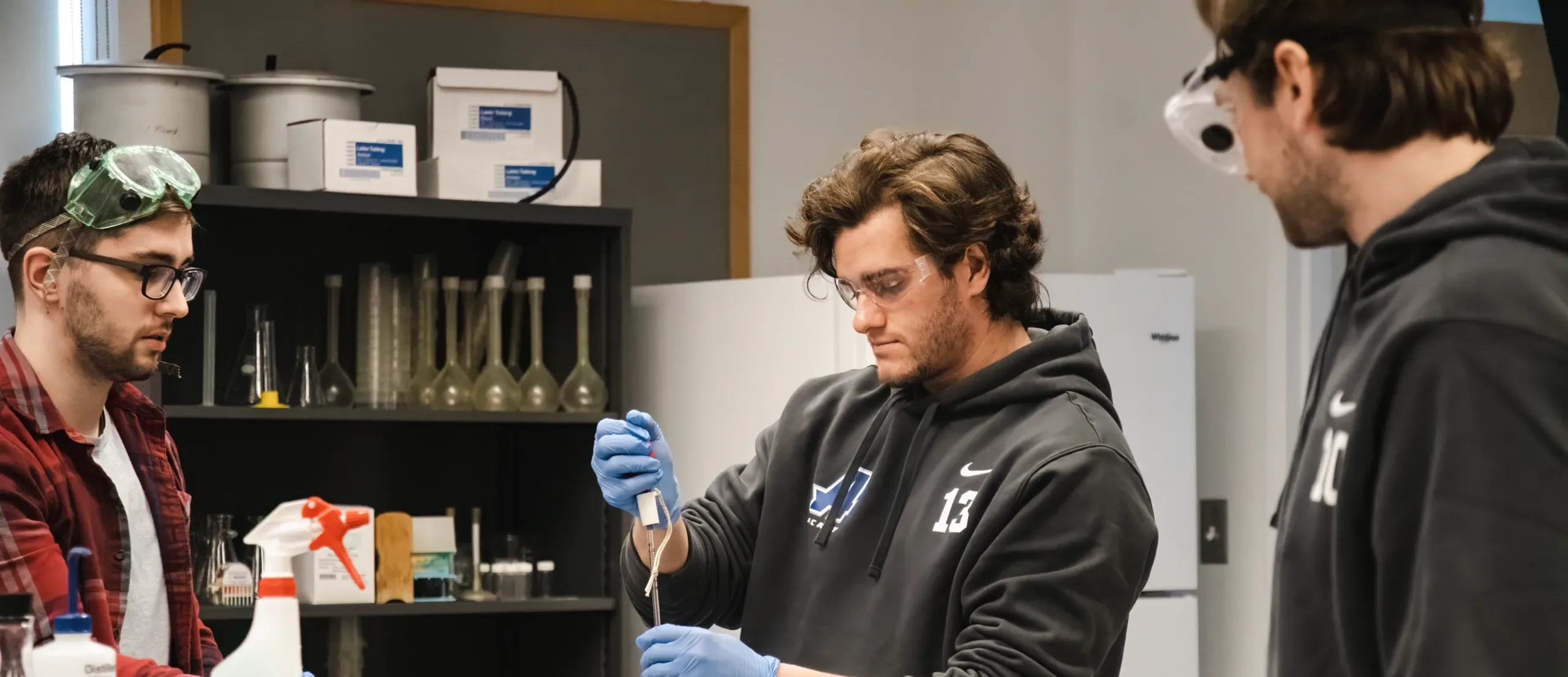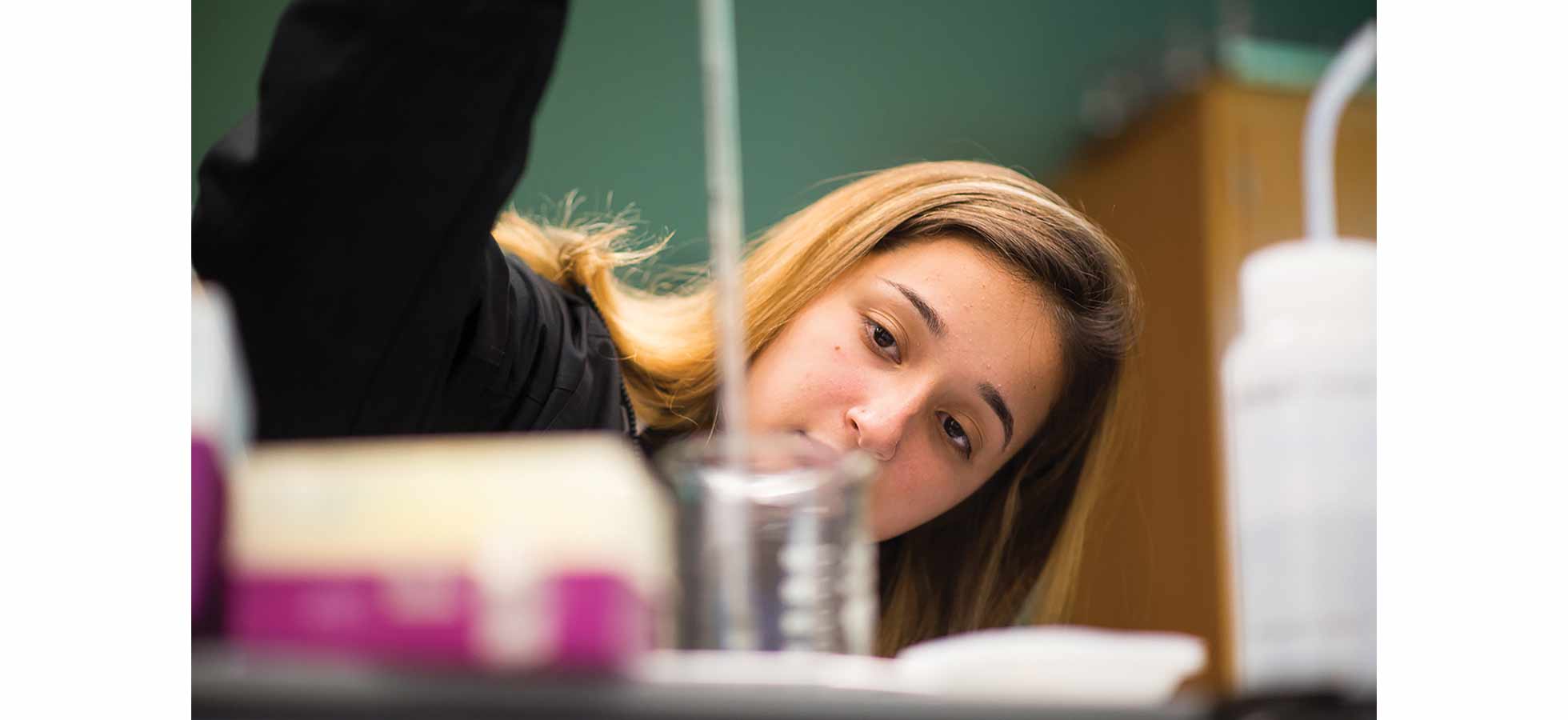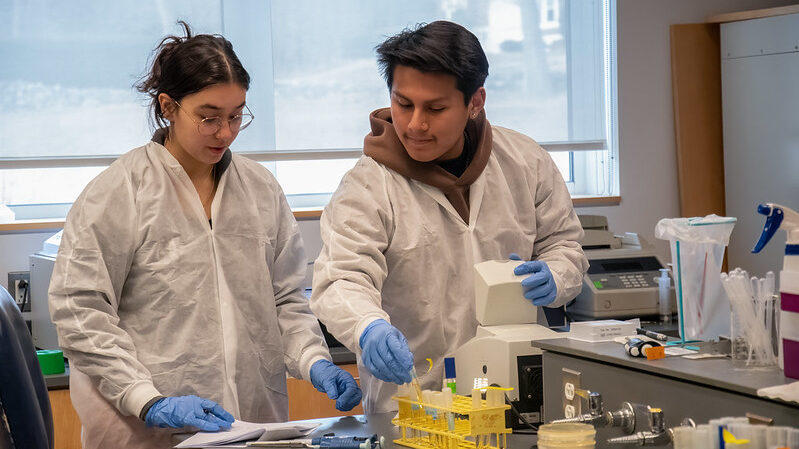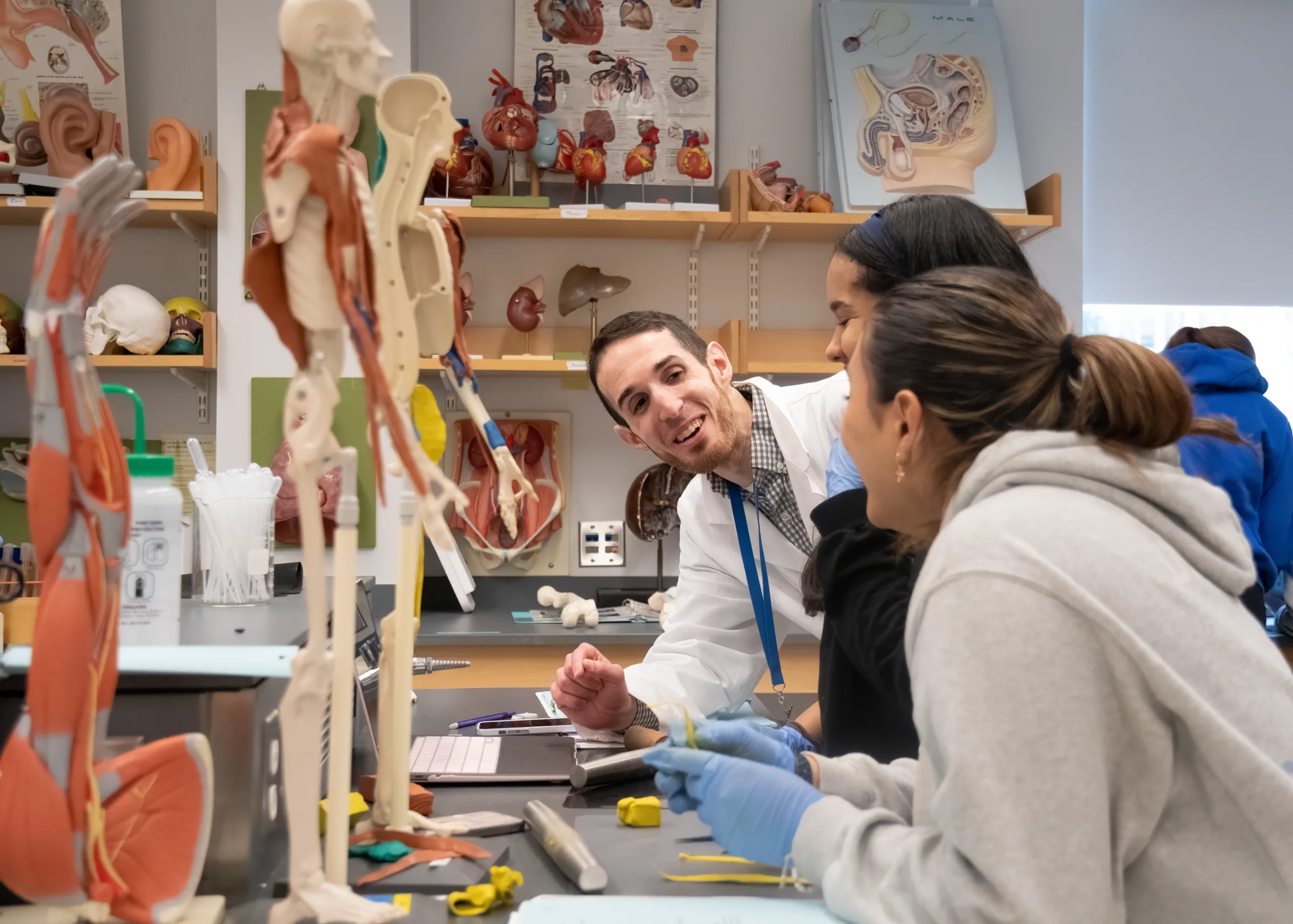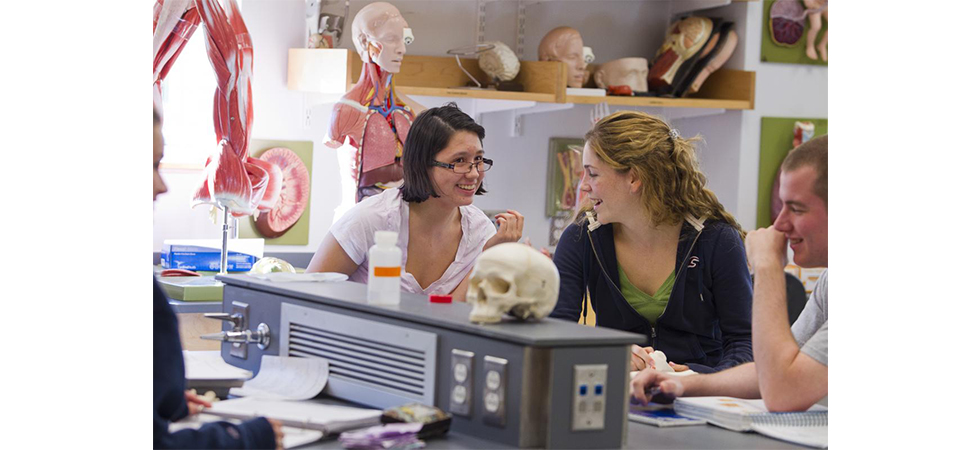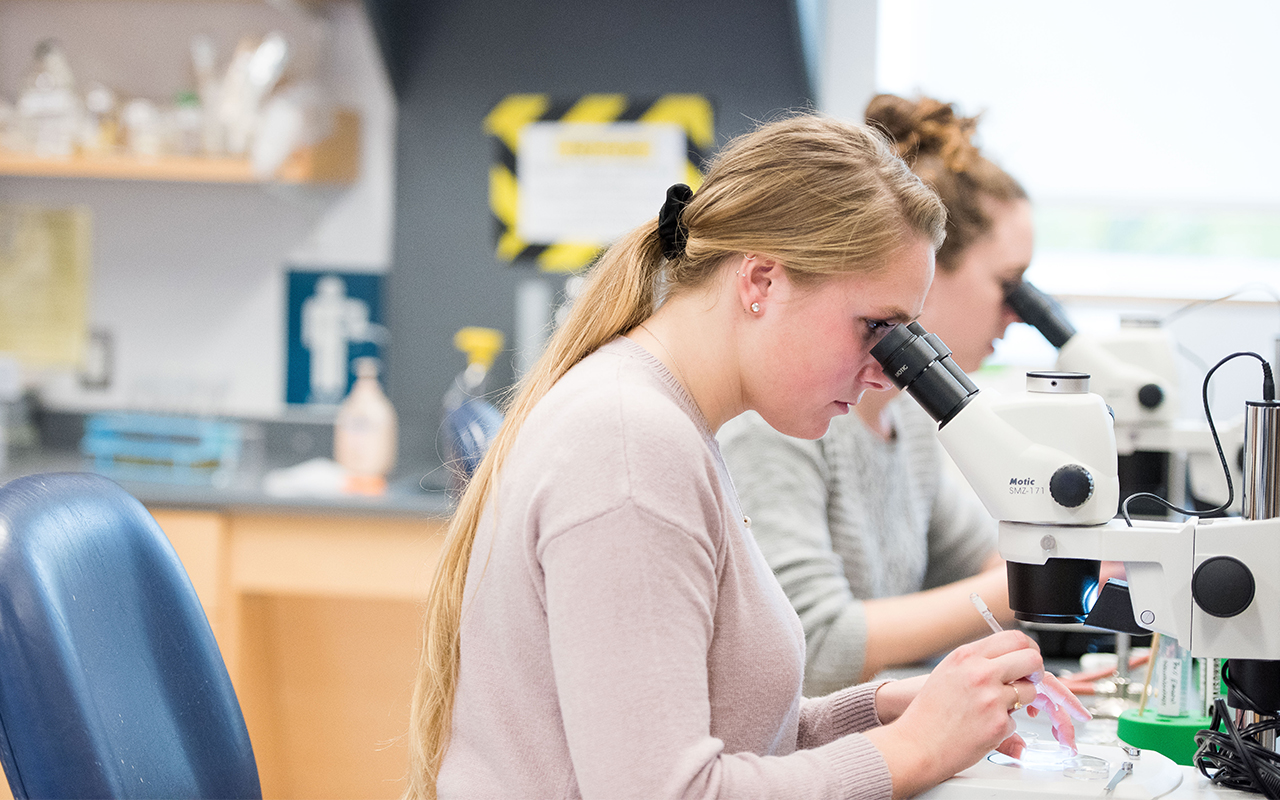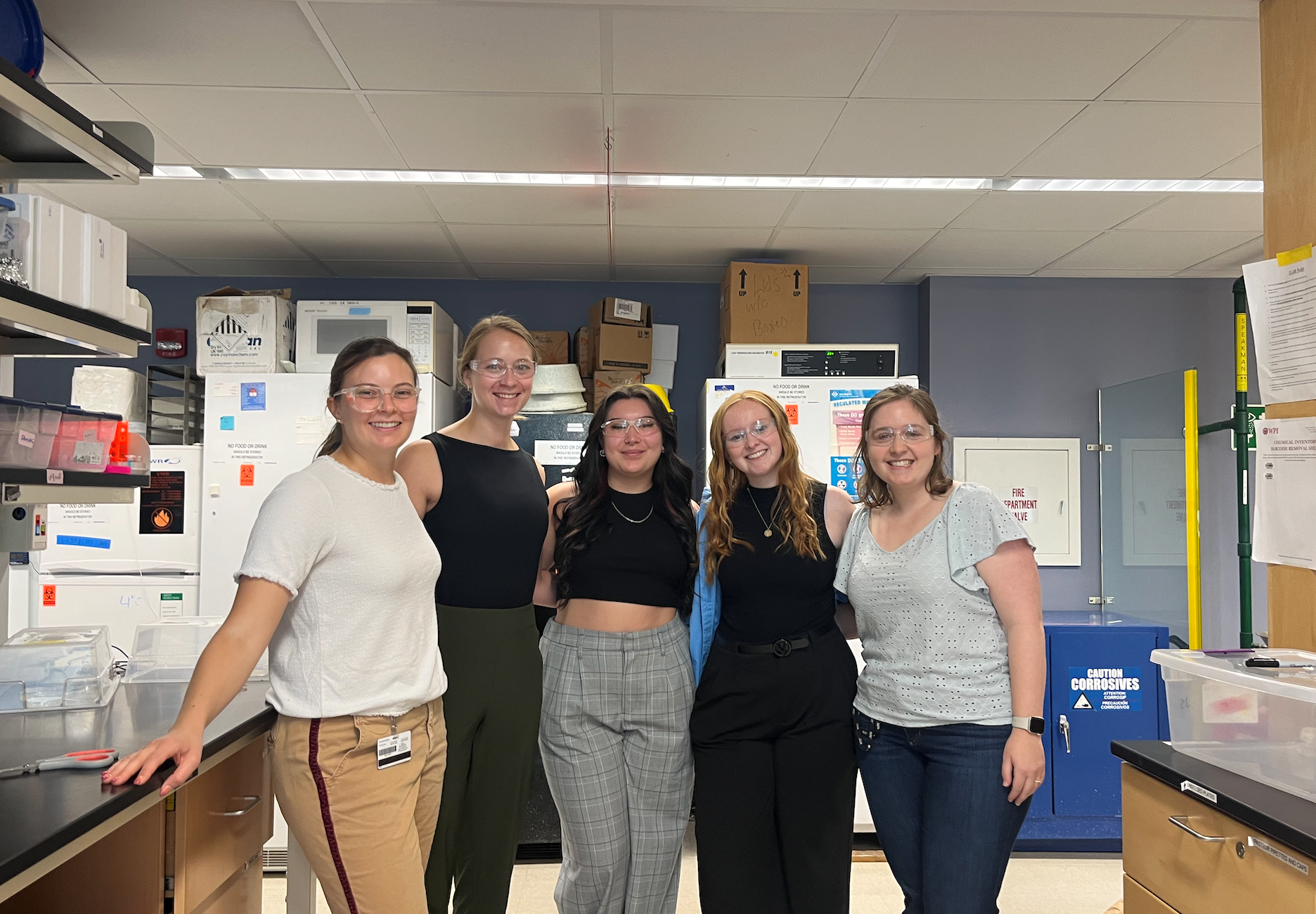Assumption offers students the opportunity to apply for paid summer research internships through the AU Summer Scholars Program.
Summer research students work directly with a professor for 10 weeks during the summer break. These competitive positions are a full-time commitment for the entire 10-week period and give students a unique opportunity to immerse themselves in original research with a faculty mentor. New projects are being proposed every year in most disciplines. The AU Summer Scholars Program is funded by the Biological and Physical Sciences Department, the Center for Neuroscience, the Honors Program, and the D’Amour College of Liberal Arts and Sciences.
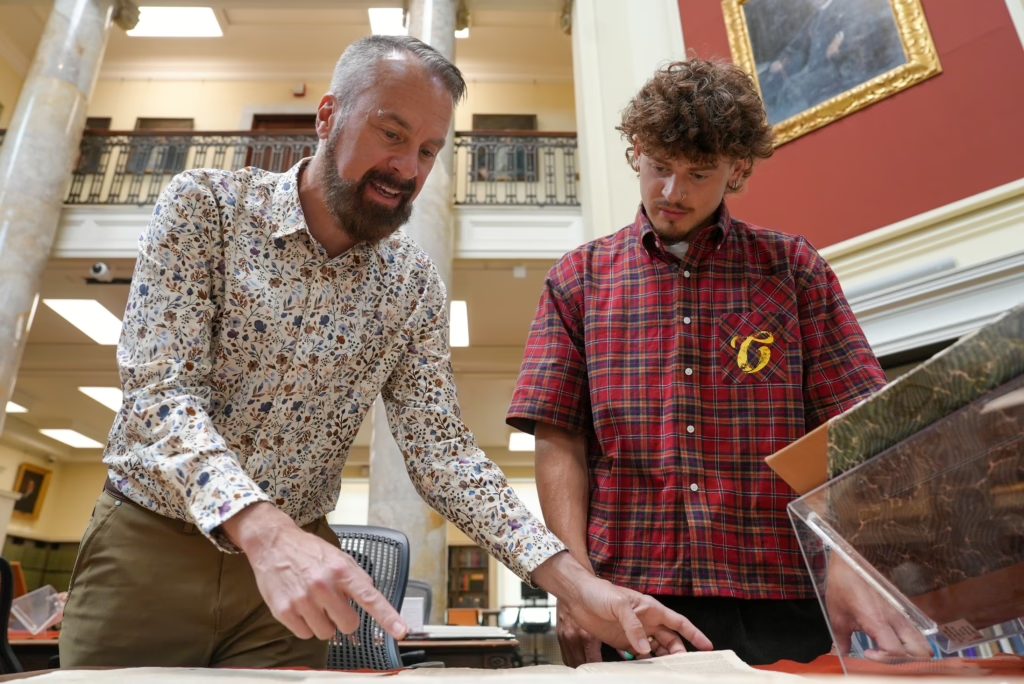
Program Coordinator
Benjamin Knurr, Ph.D.
“AU Summer Scholars are paired directly with faculty on original research projects in a wide range of disciplines. Regardless of that discipline, students gain insight into the various scholarly activities of our faculty and become better prepared for future careers and studies. That mutually beneficial mentorship inspires students to pursue answers to deep, original questions, while offering faculty a fresh view of their projects.”
Past Summer Research Projects
-
- Responses to ultraviolet and visible light of red-tailed fairy shrimp (Streptocephalus mackini)
- Desmid communities and environmental conditions in selected Vermont wetlands
- Behavioral Responses of Branchiopod Crustaceans to Ultraviolet Light
-
- Photodegradation of plastic additives under simulated environmental conditions
- Kinetic Studies using Millifluidic Devices
- Chemical stability of plastic additives during sample workup methods
- Biotoxicity of plastic additive degradants
-
- An AI approach For Real-time Network Traffic Intrusion Detection
-
- Reimagining the Laughing Animal
- Producing a Critical Edition of the Eighth-Century, Anglo-Latin Dialogus of Archbishop Ecgberht of York.
-
- Photodegradation of plastic additives under simulated environmental conditions
- Chemical stability of plastic additives during sample workup methods
-
- Black Education in the Emancipation South
- Slavery Adverts 250 Project
-
- An AI approach For Real-time Network Traffic Intrusion Detection
- Language Acquisition and Sequencing in Children with ASD
- The Lessons of Emancipation: Black Educators and the Writing of Freedom
student Adam Ide and faculty John Bell
- The Impact of Import Competition on CEO Emotions: Insights from S&P500 Earnings Calls 2000-2021student Danting Zhu and faculty Olivia Wu
- A Review of Active Student Responding Practices in Higher Education student Ryan Singley and faculty Nicole Pantano
- Exploring Self-Organization in Non-Equilibrium Thermodynamic Systems through Agent-Based Modeling student Matthew Brouillet and faculty Georgi Georgiev
- Understanding the Campus Experience: A Holistic Exploration of Factors Related to Student Mental Health and Help-Seeking Behaviors student Claire Thomassen and faculty Hannah Smith
-
- Responses to ultraviolet and visible light of red-tailed fairy shrimp (Streptocephalus mackini)
- Behavioral Responses of Branchiopod Crustaceans to Ultraviolet Light
- Investigating roles of extracellular matrix on neuronal synapse formation
- Motivational Factors for Memory Performance
-
- Measuring Entropy in Self-Organizing Complex Systems
- Encapsulating MEMS Hydrophones using Molded Polyurethane
- Self-Organization in Nature and Technology
- Exploring Self-Organization in Non-Equilibrium Thermodynamic Systems through Agent-Based Modeling
-
- An Evaluation of How Negative Reinforcement Impacts Caretaking
- Factors that Influence Academic Cheating: A Systematic Review and Exploratory Analysis
- Qualitatively Evaluating the Role of Gender and Technology in Student Understanding of Computational Thinking
- Using Retrieval Practice to Learn About Maladaptive Thinking Patterns
- The campus experience: examining student mental health and help-seeking behavior
- Academic Cheating and Stressors at the University Level
- Using Blank Slate to Promote Retrieval Practice
- Faculty Use of Active Student Responding in Post-Secondary Education
- The Role of Active Student Responding in Higher Education Classrooms
- Language Acquisition and Sequencing in Children with ASD
-
- Sex, Personhood, and Emerging Technologies
- Radical Feminism and Catholicism: Toward Holistic Understanding of Women’s Bodies
- Responses to ultraviolet and visible light of red-tailed fairy shrimp (Streptocephalus mackini)
- Desmid communities and environmental conditions in selected Vermont wetlands
- Behavioral Responses of Branchiopod Crustaceans to Ultraviolet Light
- Photodegradation of plastic additives under simulated environmental conditions
- Kinetic Studies using Millifluidic Devices
- Chemical stability of plastic additives during sample workup methods
- Biotoxicity of plastic additive degradants
- An AI approach For Real-time Network Traffic Intrusion Detection
- Reimagining the Laughing Animal
- Producing a Critical Edition of the Eighth-Century, Anglo-Latin Dialogus of Archbishop Ecgberht of York.
- Photodegradation of plastic additives under simulated environmental conditions
- Chemical stability of plastic additives during sample workup methods
- Black Education in the Emancipation South
- Slavery Adverts 250 Project
- An AI approach For Real-time Network Traffic Intrusion Detection
- Language Acquisition and Sequencing in Children with ASD
- The Lessons of Emancipation: Black Educators and the Writing of Freedom
student Adam Ide and faculty John Bell
- The Impact of Import Competition on CEO Emotions: Insights from S&P500 Earnings Calls 2000-2021student Danting Zhu and faculty Olivia Wu
- A Review of Active Student Responding Practices in Higher Education student Ryan Singley and faculty Nicole Pantano
- Exploring Self-Organization in Non-Equilibrium Thermodynamic Systems through Agent-Based Modeling student Matthew Brouillet and faculty Georgi Georgiev
- Understanding the Campus Experience: A Holistic Exploration of Factors Related to Student Mental Health and Help-Seeking Behaviors student Claire Thomassen and faculty Hannah Smith
- Responses to ultraviolet and visible light of red-tailed fairy shrimp (Streptocephalus mackini)
- Behavioral Responses of Branchiopod Crustaceans to Ultraviolet Light
- Investigating roles of extracellular matrix on neuronal synapse formation
- Motivational Factors for Memory Performance
- Measuring Entropy in Self-Organizing Complex Systems
- Encapsulating MEMS Hydrophones using Molded Polyurethane
- Self-Organization in Nature and Technology
- Exploring Self-Organization in Non-Equilibrium Thermodynamic Systems through Agent-Based Modeling
- An Evaluation of How Negative Reinforcement Impacts Caretaking
- Factors that Influence Academic Cheating: A Systematic Review and Exploratory Analysis
- Qualitatively Evaluating the Role of Gender and Technology in Student Understanding of Computational Thinking
- Using Retrieval Practice to Learn About Maladaptive Thinking Patterns
- The campus experience: examining student mental health and help-seeking behavior
- Academic Cheating and Stressors at the University Level
- Using Blank Slate to Promote Retrieval Practice
- Faculty Use of Active Student Responding in Post-Secondary Education
- The Role of Active Student Responding in Higher Education Classrooms
- Language Acquisition and Sequencing in Children with ASD
- Sex, Personhood, and Emerging Technologies
- Radical Feminism and Catholicism: Toward Holistic Understanding of Women’s Bodies
Faculty


















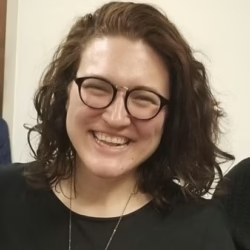
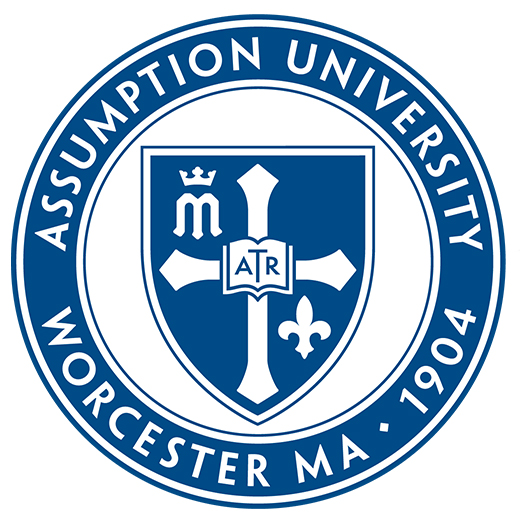
Center for Neuroscience
The Center provides enriching avenues for experiential learning within the interdisciplinary field of neuroscience. These opportunities include paid summer research internships, a neuroscience seminar series, co-curricular activities, and community outreach.
